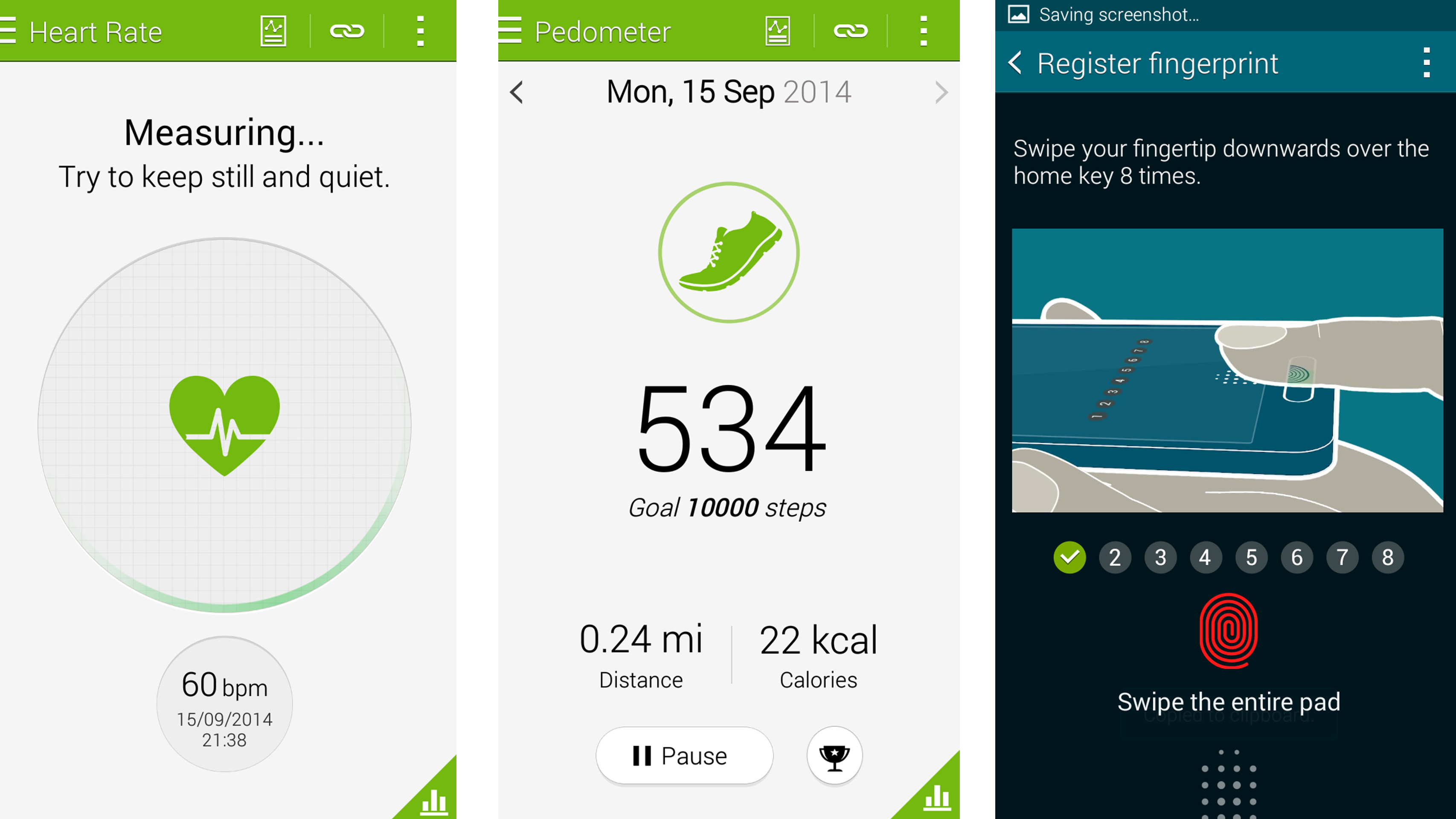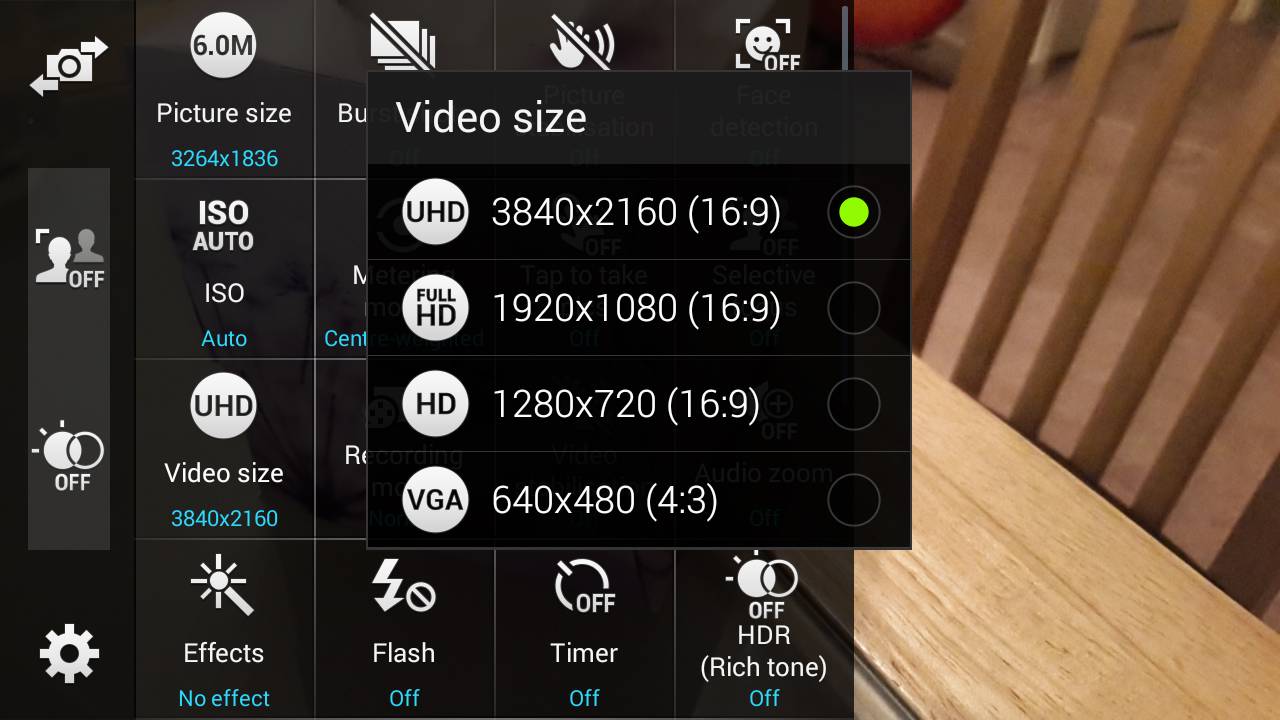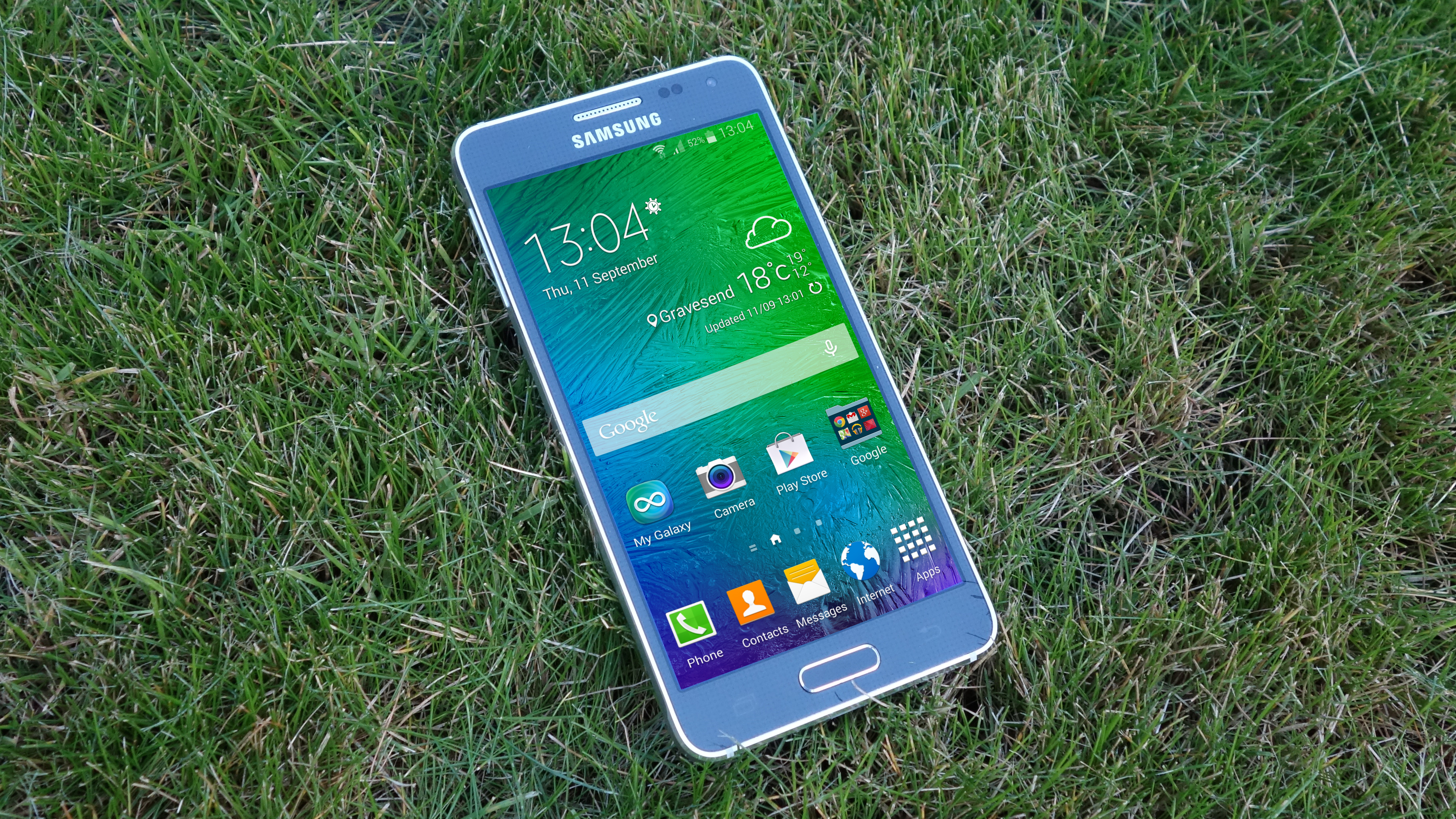Why you can trust TechRadar
Many would argue that the Samsung Galaxy Alpha's defining feature is its stunning looks, and that may well be the case. Indeed, even Samsung itself claims that the focus is on "smart aesthetics and a compact frame" here.
But don't let that fool you into thinking that the Alpha skimps on interesting features. Not all of them are entirely successful, but they're here.
For one thing, the Finger Scanner from the Samsung Galaxy S5 has made its way into the Alpha. Think of it as Samsung's version of Apple's Touch ID, only not as good.

Like Apple's solution, you can use your finger or thumbprint to access your locked phone from sleep. You can also use it to input registered website passwords, once you've fed the initial details in.
This is all well and good, but the reason Touch ID works is that it's simple to initiate - just press your finger onto the home key - and it works the vast majority of the time.
Samsung's solution requires you to steadily swipe your finger from the bottom of the screen over the lozenge-shaped home key in a very specific way. Once you've perfected the technique, it works more often than not, which isn't often enough. These factors combine to make it a bit of a pain to use, and after toying with it I switched it off pretty quickly.
Fitness features
Another of the special features to have made its way into the Galaxy Alpha is a heart rate monitor. Combined with the S Health app, it lets you monitor how your heart is doing over a period of time.
Sign up for breaking news, reviews, opinion, top tech deals, and more.
This too was present in the Samsung Galaxy S5, and once again it works in much the same way. There's a little optical reader right where the camera flash is, on the back of the device. Enter the heart rate monitor section of the S Health app and hold your finger up against the reader, and you'll soon have a seemingly accurate reading.
Of course, it's a pretty specific function that only certain fitness fanatics will consistently use. For the rest, it's a bit of a gimmick.
Still, S Health has other functions beyond reading your heart rate. In fact, it's a one-stop shop for all things health and fitness related.
You can track your calorie intake, and start an exercise routine based on running, walking, cycling or hiking. This will employ the phone's GPS and music-playing system to send you on your merry way, tracking the distance covered and calories burned along the way.
The feature you'll most probably encounter the most in general use is the pedometer. Once set up, you'll get a constant reading of the steps you've taken during the day on your lock screen, as well as updates on your progress towards a preset goal.
I was suspicious of how accurate this was given the high number of steps that it registered during a day of my inherently sedentary job. Besides, working towards a set number of steps seems a little arbitrary. But perhaps if you're semi-serious about getting fitter and don't plan to splash out on a dedicated fitness tracker, this may be of interest.
Even then, though, there are superior Android fitness applications out there on the Google Play Store, such as Adidas MiCoach and Runkeeper.
4K video
We'll discuss the Samsung Galaxy Alpha's camera in general terms in the appropriate section, but I should mention here that it's capable of recording 4K video.
Yes, this is another feature that can also be found on the Samsung Galaxy S5, but the Samsung Galaxy Alpha isn't competing with that. It's competing directly with the iPhone 6, and the iPhone 6 doesn't do 4K.

Of course, watching UHD video back on the phone itself doesn't reveal much. You'll only really see the benefit if you have a 4K TV or monitor, although the footage I shot and played back on my 15-inch MacBook Pro with Retina display (which has a 2,880 x 1,800 resolution) looked plenty smooth enough.
Again, this isn't really a feature that many people will need, and it's highly questionable whether taking 4K video on a smartphone is worth the extra storage space overhead - particularly here on the Galaxy Alpha, which doesn't have expandable storage.
That latter point is a slightly odd one. Yes, the Samsung Galaxy Alpha has a moderately generous 32GB of internal storage as standard. But why is there no microSD slot?
The Sony Xperia Z3 and Xperia Z3 Compact are also able to shoot 4K video. Although both handsets do have their own issues with 4K video, they at least come with a microSD slot that allows the memory to be boosted by up to 128GB.
The Alpha is supposed to be a direct iPhone 6 rival (Apple's phones never come with expandable storage), but given that the Alpha's rear panel is removable, why not include a microSD slot?
Was space really that limited?

Jon is a freelance journalist who has been covering tech since the dawn of the smartphone era. Besides TechRadar, his words and pictures have appeared in The Telegraph, ShortList, Tech Advisor, Trusted Reviews, Expert Reviews, and more. He largely covers consumer technology, with a particular focus on smartphones and tablets. However, he's also been known to dabble in the worlds of entertainment and video games.
